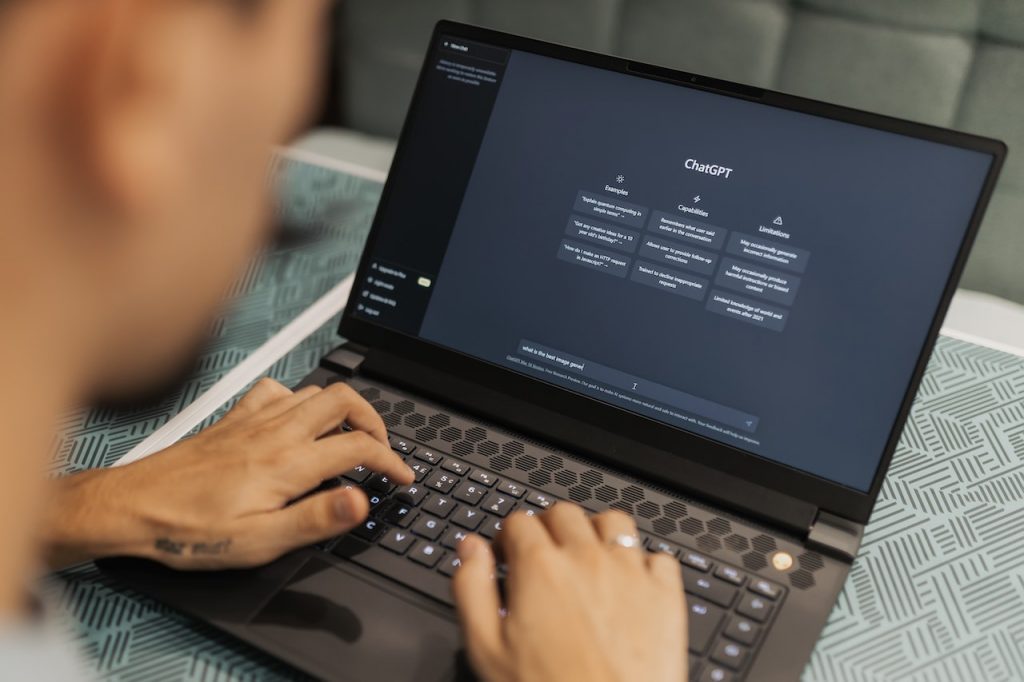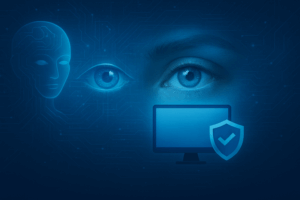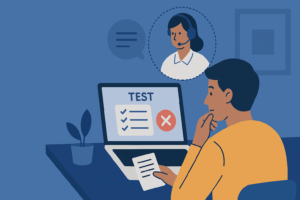Exams are integral to the education system and evaluate a student’s knowledge and understanding of a subject. However, with the rise of technology, exam cheating has become increasingly prevalent, making it difficult for teachers and institutions to assess a student’s true capabilities accurately. ChatGPT, a language model capable of generating human-like responses, is one of the latest tools for exam cheating. In this blog, we will explore the use of AI writing tools for exam cheating, the plagiarism detector online to identify cheating, and the prevention techniques useful to curb this unethical practice.
Disadvantages of the Use of ChatGPT during Online Exams

There are several potential disadvantages of using ChatGPT during online exams:
Security Concerns: If students are allowed to use ChatGPT during an exam, there is a risk that they may use it to cheat. They could use the tool to find answers to questions or get help with difficult problems, which would undermine the integrity of the exam.
Reliability: While ChatGPT is an advanced language model, it could be better. The tool may provide inaccurate information to students, which could impact their exam performance.
Technical Difficulties: If the online exam platform or the ChatGPT tool experiences technical difficulties during the exam, this could cause significant disruptions and lead to frustration and stress for students.
Inequity: Not all students may have equal access to ChatGPT, which could create an unfair advantage for those who do. This could exacerbate existing inequalities and make it more difficult to ensure that all students have an equal opportunity to succeed.
Lack of Critical Thinking: If students rely too heavily on ChatGPT during an exam, they may not develop the critical thinking and problem-solving skills essential for success in academic and professional settings. They may need to be more dependent on the tool. It leads to struggle when faced with real-world challenges that require them to think creatively and independently.
How to Detect ChatGPT Plagiarism?

Detecting ChatGPT plagiarism can be challenging as it involves identifying text generated by an AI language model. Let us see; Can plagiarism checkers detect ChatGPT? However, several methods are useful for ChatGPT plagiarism detection:
Use Plagiarism Detection Software: Various online plagiarism detection tools, such as Turnitin and Grammarly, use algorithms to compare text and identify similarities. These AI detectors are useful for detecting ChatGPT plagiarism. AI content detectors are effective in spotting cheating attempts during online exams.
Analyze Response Patterns: ChatGPT generates responses based on its training data so that it may have certain unique response patterns. By analyzing response patterns and comparing them to the original training data, it may be possible to identify ChatGPT plagiarism.
Check for Unnatural Language: ChatGPT has the functional training to use natural language. AI tools may generate responses that contain unnatural language or phrasing. ChatGPT plagiarism detection may be possible by analyzing an answer’s language and vocabulary. Hence, plagiarism detectors are very useful.
Use Human Experts: Finally, experts in the field can review responses and identify any instances of ChatGPT plagiarism. These experts can check the language, content, and structure of a reply to identify any cases of plagiarism.
Detecting ChatGPT plagiarism requires a combination of technological tools and human expertise. Using various methods makes it possible to identify instances of plagiarism and ensure that academic integrity is maintained.
How Can Online Proctoring Software Prevent Online Exam Cheating using ChatGPT
Online proctoring services can prevent online exam cheating using ChatGPT in many ways:
Secure Standalone Exam Browser: Several known and unknown browser extensions and plugins are already in the market to attach ChatGPT with most browsers. In this scenario, using a secure standalone browser like the one Proctortrack is offering, i.e., Proctored Exam-in-Browser (PEBble), can be a more reliable hack to prevent the use of ChatGPT.
Monitoring: Online proctoring software can monitor the exam environment using audio, video, and other sensors to detect suspicious activity, including ChatGPT. The proctoring software can flag any unusual activity for review by human proctors.
Anti-cheating Measures: Online proctoring tools can use a range of anti-cheating measures such as lockdown browsers, which restrict access to other applications or websites during the exam, and biometric verification to ensure that the person taking the exam is a registered student.
AI-powered Detection: Online proctoring tools can also use artificial intelligence and machine learning algorithms to detect the use of ChatGPT. These algorithms can analyze the student’s typing patterns and the language used in the chatbot messages. Ultimately to identify any inconsistencies or suspicious activity.
Live Proctoring: Many online proctoring tools offer live proctoring, where a human proctor monitors the exam in real time. The proctor can intervene if they detect any unusual behavior, including using ChatGPT.
Online proctoring can be an effective way to prevent online exam cheating using ChatGPT. By monitoring the exam environment, using anti-cheating measures, leveraging AI-powered detection, and offering live proctoring, online proctoring tools can help to ensure that exams happen fairly and securely.
Summing Up
In conclusion, exam cheating using ChatGPT seriously threatens the integrity of the education system. However, we can ensure fewer cheating incidents with effective plagiarism detection software and preventive measures. Institutions need to take a proactive approach to prevent exam cheating. It can be done by educating students. Specifically about the consequences of cheating, providing clear guidelines, and using technology to their advantage. By working together, we can uphold the integrity of the education system. Such measures also ensure that students undergo fair and accurate assessments.










